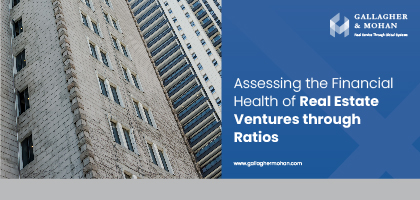27 March 2024
Importance of Accurate Rent Roll Management for Property Owners
Rent roll management serves as the backbone of financial oversight for property owners, providing a comprehensive record of rental income and expenses. At its core, a rent roll is a detailed list of all rental units within a property, outlining key information such as tenant names, lease terms, rental rates, and payment history. It offers property owners invaluable insights into their revenue streams and financial health.
Importance of Accuracy in Rent Roll Management
The accuracy of rent roll data is paramount for property owners as it directly impacts their financial decisions and operational efficiency. Reliable rent roll data ensures precise budgeting, forecasting, and strategic planning, helping owners maximize profitability and mitigate risks associated with vacancies, late payments, or lease disputes.
Recognizing the complexities involved in rent roll management, many property owners are turning to outsourcing accounting services to ensure accuracy and compliance. Outsourcing offers access to specialized expertise, advanced technology, and scalable solutions, enabling property owners to streamline their financial operations while focusing on core business activities.
Understanding Rent Roll Management
A rent roll is a detailed document that lists all rental units within a property, along with pertinent information such as tenant names, lease start and end dates, rental rates, security deposits, and any additional charges. It serves as a crucial tool for property owners to track rental income and expenses effectively.
Accurate rent roll data is essential for property owners to make informed financial decisions and optimize the performance of their rental properties. It provides insights into occupancy rates, rental arrears, lease expirations, and potential vacancies, enabling owners to forecast cash flow, identify revenue opportunities, and address any issues promptly.
Despite its importance, managing a rent roll can pose various challenges for property owners. These challenges may include maintaining data accuracy across multiple properties, tracking changes in lease terms or rental rates, handling tenant turnover, and ensuring compliance with regulatory requirements such as fair housing laws and rent control ordinances. Additionally, manual data entry and outdated systems can lead to errors and inefficiencies in rent roll management.
Also Read: Understanding Cost Segregation and Its Benefits for Real Estate
The Impact of Inaccurate Rent Roll Management
Financial Implications for Property Owners
Inaccurate rent roll management can have significant financial repercussions for property owners. Errors in recording rental income and expenses may result in inaccurate financial reporting, leading to misinformed budgeting and forecasting decisions. Moreover, discrepancies in rent roll data can lead to missed rental payments, late fees, or even tenant disputes, ultimately affecting the overall profitability and cash flow of the property.
Legal and Compliance Risks
Failure to maintain accurate rent roll data can expose property owners to legal and compliance risks. Inaccuracies in lease terms, rental rates, or tenant information may result in breaches of contract or violations of regulatory requirements. Property owners may face legal disputes, fines, or penalties for non-compliance with laws such as fair housing regulations, landlord-tenant ordinances, or tax reporting obligations.
Operational Challenges
Inaccurate rent roll management can create operational challenges for property owners, impacting their ability to efficiently manage rental properties. Incorrect data may lead to difficulties in tracking lease expirations, managing tenant communications, or addressing maintenance requests effectively. Moreover, manual data entry processes and outdated systems can hinder productivity and increase the likelihood of errors in rent roll management, adding to operational inefficiencies.
Also Read: Accounting for Property Depreciation and Its Impact on Taxes
The Case for Outsourcing Accounting Services
1. Expertise and Specialization
Outsourcing accounting services provides property owners access to a team of professionals with specialized expertise in rent roll management and financial reporting. Gallagher & Mohan possess the knowledge and experience to accurately maintain rent roll data, handle complex accounting tasks, and ensure compliance with relevant regulations. By leveraging the expertise of outsourcing partners, property owners can benefit from industry best practices and stay updated on changes in accounting standards and tax laws.
2. Cost-effectiveness
Outsourcing accounting services can offer cost-effective solutions for property owners compared to hiring in-house accounting staff. By outsourcing, property owners can avoid the overhead costs associated with recruiting, training, and retaining accounting personnel. Additionally, Gallagher & Mohan as an outsourcing partner often operate on a scalable fee structure, allowing property owners to pay only for the services they need. This cost-effective approach enables property owners to allocate resources more efficiently and focus on core business activities.
3. Scalability and Flexibility
Outsourcing accounting services provides property owners with scalability and flexibility to adapt to changing business needs. Whether managing a single property or a portfolio of rental units, Gallagher & Mohan as an outsourcing partner can tailor your services to accommodate the unique requirements of each client. As property portfolios expand or contract, outsourcing partners can scale their support, accordingly, providing property owners with the flexibility to adjust their accounting services as needed. This scalability and flexibility enable property owners to effectively manage fluctuations in workload and focus on strategic growth initiatives.
Conclusion
The importance of accurate rent roll management for property owners cannot be overstated. From financial decision-making to regulatory compliance, the rent roll serves as a foundational tool for effective property management. However, the challenges associated with rent roll management, including data accuracy, compliance, and operational efficiency, highlight the need for strategic solutions.
Outsourcing accounting services emerges as a compelling solution for property owners seeking to enhance their rent roll management practices. By partnering with our experienced accounting professionals, property owners gain access to expertise, advanced technology, and customized solutions tailored to their specific needs. Outsourcing not only streamlines data collection, reporting, and analysis but also provides real-time insights and scalability for managing rental properties effectively.
In a dynamic and competitive real estate market, outsourcing rent roll management represents a strategic investment that empowers property owners to stay ahead of the curve, maximize returns on investment, and achieve long-term success in property management.
To learn more about real estate accounting outsourcing services, check out our accounting division!
FAQs
How do you analyze a rent roll?
Analyzing a rent roll involves meticulously reviewing each rental payment, associated costs, and utilities for accuracy. It also entails ensuring compliance with lease stipulations. Additionally, assessing additional sources of income, such as parking fees, is crucial to obtaining a comprehensive financial evaluation of the property's status.
What is the meaning of rent roll in accounting?
In accounting, a rent roll is a detailed record that contains essential information for each tenant of a rental property, including their lease amount and duration. Investors utilize this data to forecast their rental income, thereby enabling better property management. By analyzing renting arrangements, investors can maximize potential revenue streams using information derived from rent rolls.
What is a rent roll operating statement?
A rent roll operating statement is a financial document that outlines the income generated from a property through rental payments. It provides crucial insights into current and past tenants, their rental rates, and any contractual obligations, such as maintenance fees or security deposits. This information is vital for landlords to understand the financial performance of their rental property and identify areas for improvement or potential risks. Additionally, the rent roll operating statement can be regularly updated to reflect changes.
What is the difference between a rent roll and a rent ledger?
Although similar in nature, the rent roll and the rent ledger serve different purposes. The rent roll primarily documents gross rental income, while the rent ledger matches expenses with gross incomes to determine net profits for property owners. This comprehensive view of financial gain from leasing out properties provides an accurate representation of the potential earnings from rental assets.



